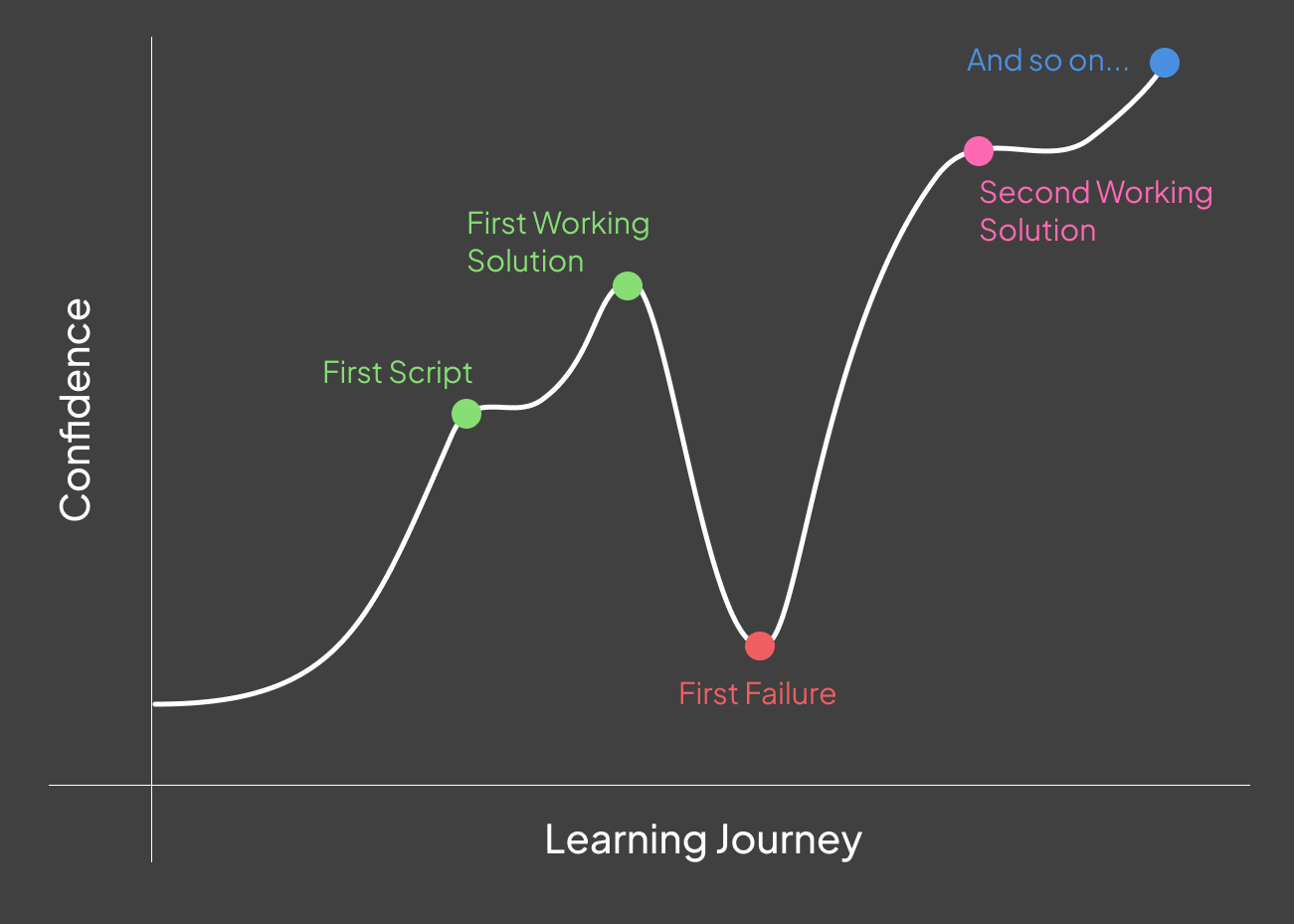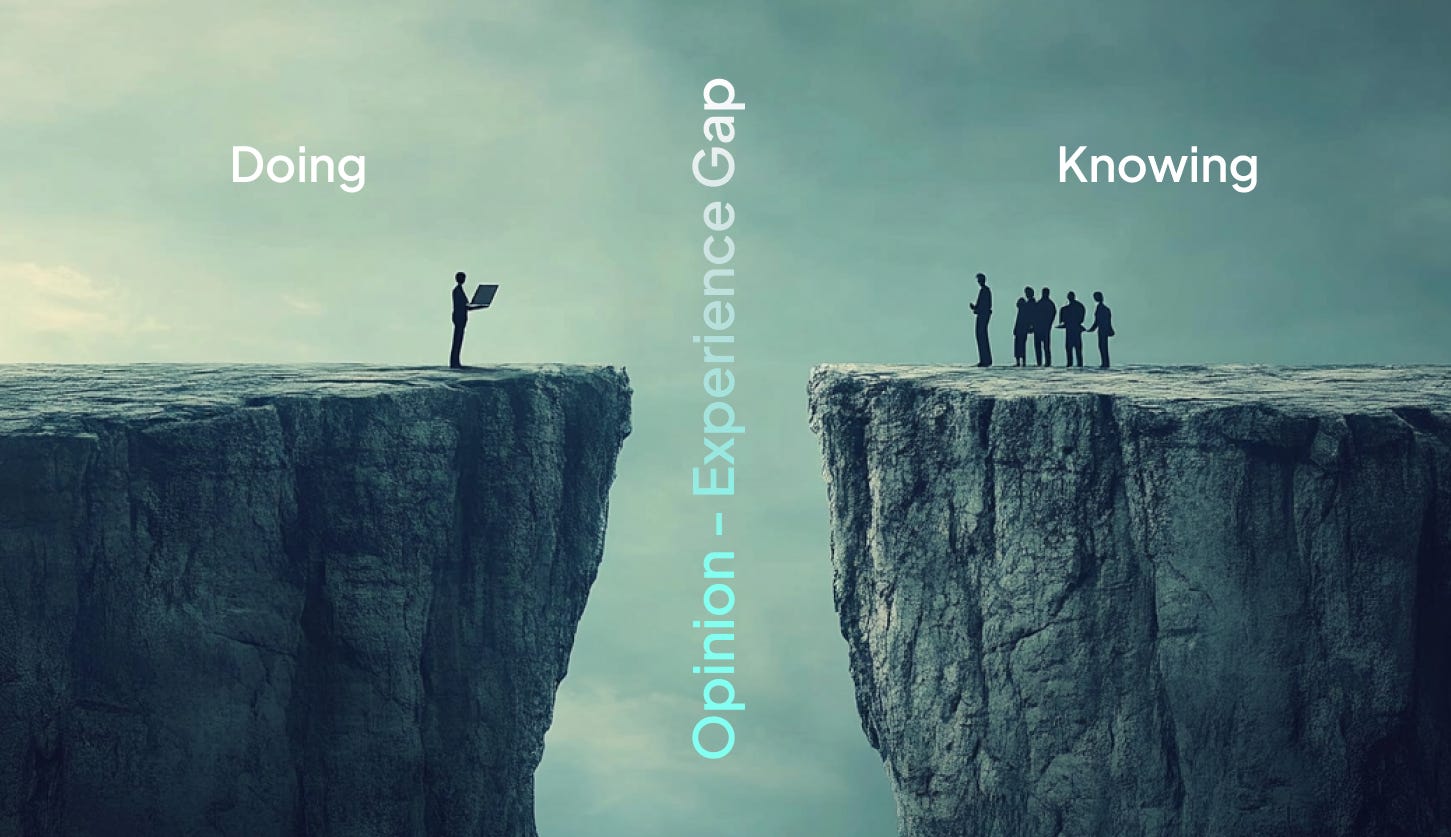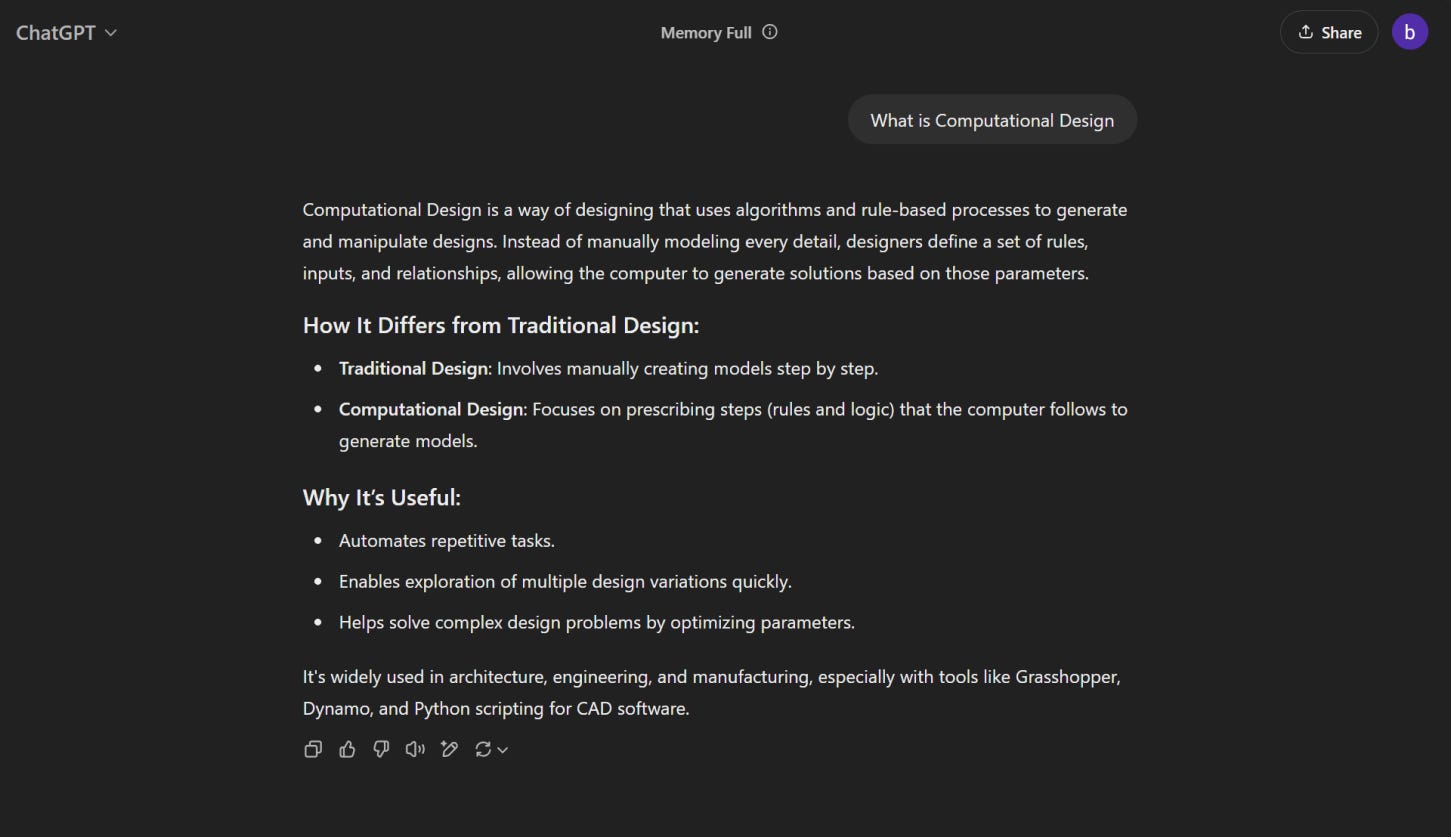Why We Can't Skip the Hard Parts of Learning
And the time I almost lost my cool
I am annoyed. I just got out of an argument. Let's call this person Ray. He was telling me (loudly) that Dynamo can generate a perfect analysis model from Revit. It was a pointless argument and the yelling didn't help his case either.
For context, Revit is a documentation model, it typically reflects what's built in real-life, not what's used for analysis by engineers. Converting between the two often requires expertise and custom solutions.
We were in the kitchen, so for Ray to prove his point, we walked over to this desk. Stood in front of his computer as he opened up the "Revit sample model" and ran a script that created a clean analysis model. "Ha, I told you it worked". Okay, I was angry before but now, I am furious.
Of course, it worked. It's a sample model. It's not how the real world works. As hard as I tried to convince him, Ray still insisted that it will work on any model. So, I gave him a real one from a recent project I had been working on.
Lo and behold, it doesn't work. It couldn't handle the complexity of the model. Ray was frantically trying to tweak the script to make it work, but it wouldn't listen to him. Instead of admitting his script wasn't good enough (it is a very hard problem to solve), he went on to criticize our modelling standards.
His script only worked on "properly built" models. He was so sure that our models were modelled incorrectly because he took a 2 week intensive course on Dynamo. There's that ringing in my ear again.
I needed some air. The room was closing in and my hands are slowly becoming a fist. So, I walked away.
Maybe I'm mad because I just spent the last 3 days writing a script that solved this exact problem for a project. Maybe because I know that it's impossible to do a 2 week course and make something perfect. Maybe I was just hungry.
The Gap Between Knowing and Doing
After some time away, I've come to understand this as the "opinion-experience gap". Yes, I gave it a name because it makes it easier to reference, but I am sure there is a name out there already.
This gap is about people who think they know because of social media or a short course against the people who actually do the work. I think if Ray spent more time on his script and worked with more real world models, he would find the problem pretty quickly.
In our current information-rich world, basic knowledge is wonderfully accessible. A few hours on YouTube or some targeted questions to an AI assistant can give anyone the vocabulary and basic concepts of any topic. A quick search will tell you that "Grasshopper is a visual programming language" or "parametric modeling enables design exploration." These statements are accurate, but they are just the surface of understanding.
You can't just spend two hours on something, thinking you have mastered it.
What takes a lot more effort is the wisdom that comes only through practice. Through experience. Through failures. As much as we all love easy approaches, it's the hard stuff that equates to true learning.
There is always a trial by fire of some sorts. And you have to go through that fire regardless of what technologies we have. If you aren't willing to go through that, then it's hard to have a fully formed opinion.
There are no shortcuts in learning
This experience (a nice way for describing an argument) with Ray helped me understand that opinions are more valuable when they're earned through practice.
This doesn't mean we can't be curious or ask questions about topics we don't know. It just means there's a meaningful difference between saying "I wonder if..." and "I know that...". It's about understanding that someone else might know more than you because they have done more.
Ray could have easily found something that I missed and that conversation would have been very different.
Because true learning is hard, it becomes a filter for opinions. It doesn't mean I discount people who don't have the same level of experience as I do, it just means I learn to take them with a grain (sometimes a bucket) of salt. It's on me to not get mad when they shove their ignorance in my face.
As elitist as that sounds, I really am trying to keep an open mind regardless of who I am speaking to. You never know what you might learn.
AI and Social Media makes this worse
Now, with the advent of AI. Searching for something is even easier than before. Not only that but using something like ChatGPT makes any answer seem legit. This ease of search, while amazing also creates the illusion that learning something new should be easy.
On paper, you now know computational design and proceed to educate everyone else.
The irony is that in computational design, we try to automate and improve efficiencies everywhere. But you cannot automate learning. Everyone still has to make their first script, fail at it, and try again. Eventually, you try enough that you fail less.
There are no shortcuts when it comes to learning. True learning is meant to be difficult and uncomfortable.
You can never have enough experience, so keep an open mind
There is no amount of experience that will validate your opinion with everyone. Just like how no many years of experience I have, I am still going to get things wrong.
It's a matter of mindset. Our own experience helps build a mental map on the topic but, the map isn't the territory. And no matter how detailed our map is, it will never cover everything. And that's okay. The whole point is to learn, explore and do our own work to understand. Not putting two sentences into ChatGPT and then calling yourself an expert.
To be clear, I'm not suggesting that only people with decades of experience should speak. Fresh perspectives are valuable. I'm also not saying you need a formal education or certification to have valid insights. Even I'm self-taught in computational design and programming. I am just saying that before speaking with authority on a topic, you should have put in the work to understand it.
It's about respecting the complexity of specialized knowledge and the effort required to truly master it.
A Better Way Forward
Going back to Ray, what would have been a better approach for him? Maybe he could have asked more questions instead of making assertions. Maybe he could have been more open minded about things. and maybe I could have been more patient.
We were all beginners once but we can also maintain healthy boundaries. When someone like Ray insists on an approach that you know won't work, sometimes the best response is exactly what I did, ask them to prove it.
The next time you find yourself about to make a bold claim about a specialized topic, pause and ask yourself: "Have I earned this opinion? Have I done the work?" If the answer is no, consider reframing your statement as a question. I have to remind myself of this too.
If you found this useful, consider subscribe to CodedShapes.
I’ll send you my free guide on applying computational design at work as a thank you.






